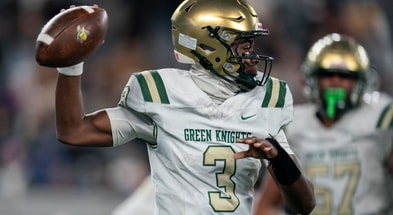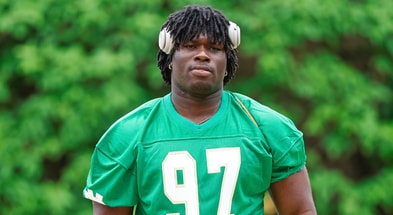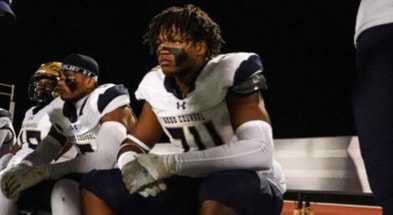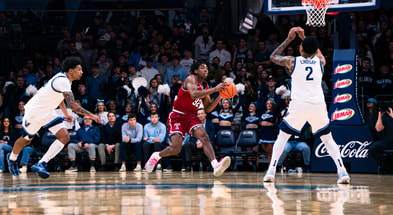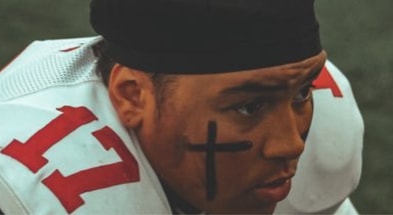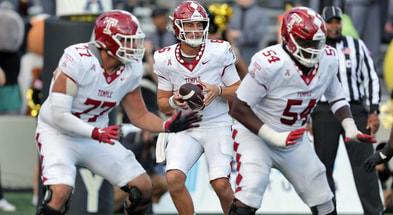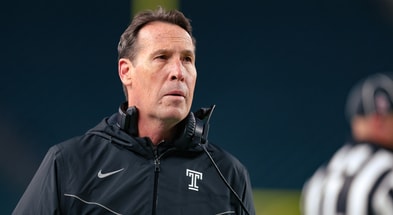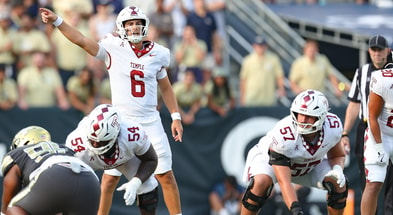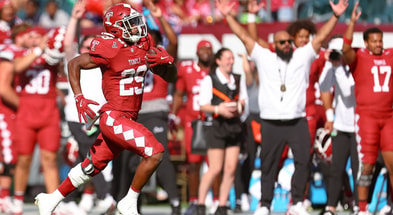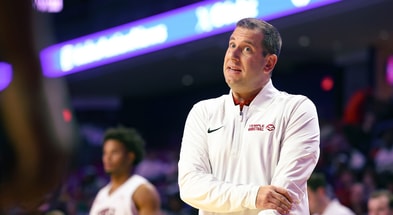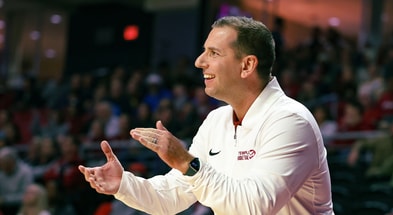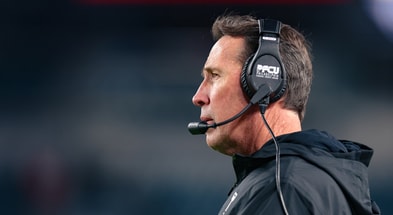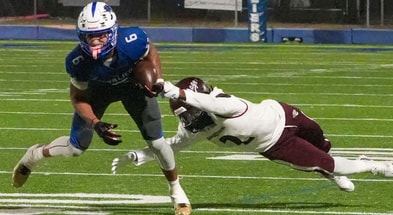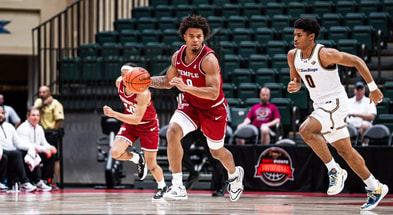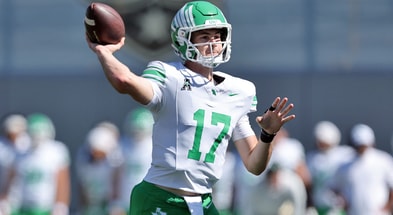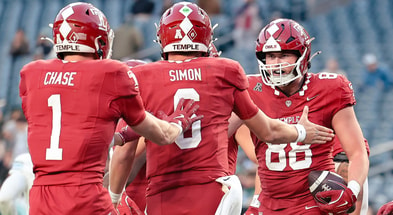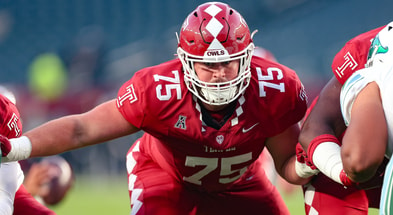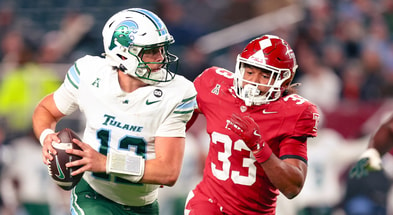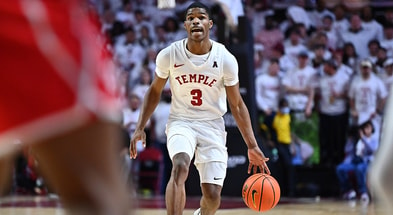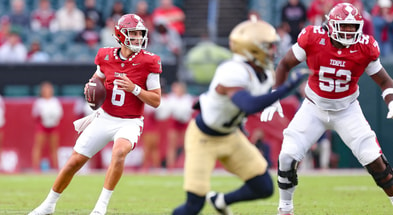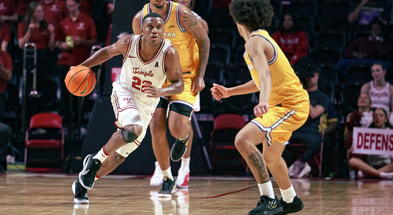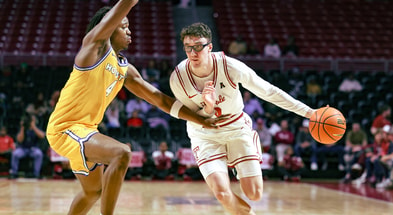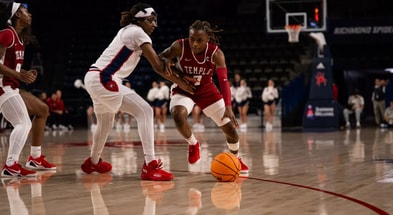K.C. Keeler, Tyler Walker and Brian L. Smith dissect Navy loss, preview Charlotte
With offensive coordinator Tyler Walker and defensive coordinator Brian L. Smith joining K.C. Keeler as part of the weekly media availability lineup, Monday was an opportunity for reporters to get access to the three top decision makers in the Temple football program and ask them, among other things, to assess the Owls six games into the season.
Temple is 3-3 heading into Saturday’s game against 1-5 Charlotte and of course coming off a heartbreaking, 32-31 loss to undefeated Navy, one that saw the Owls squander a 31-24 lead in just 37 seconds when Midshipmen quarterback Blake Horvath ran 51 yards untouched on fourth-and-1 before executing a successful two-point conversion pass, one that proved to be the game winner.
Why didn’t Keeler and Walker decide to run more time off the clock before Jay Ducker scored on his 1-yard touchdown run with 1:16 to go? How did Horvath have enough running room to go 51 yards on fourth-and-1? Was Keeler still sticking by his decision to score right away with a little more than 24 hours to think about it?
Those were some of the key topics of conversation Monday in interviews you can listen to here.
Score now or score later?
Walker, whose Temple offense is currently ranked 58th among all FBS programs in averaging 30.2 points per game, said he felt comfortable with the decision to have quarterback Evan Simon hand the ball to Ducker on first-and-goal at the Navy 1-yard line after Simon had connected with wide receiver Kajiya Hollawayne on a 22-yard fade route that nearly gave the Owls a touchdown.
Navy had two timeouts at that point, and Temple could have elected to have Simon hand off or take a knee to get the clock down to around 30 seconds before attempting a field goal with Carl Hardin on fourth down.
“We got the big [second] down, so then we started to have the conversation of what’s the best decision for us to win the football game?” Walker said. “For us, it was going to be hard to not take a shot to the end zone and go up a touchdown against Navy, who had scored every time they had the ball in the second half. So we were like, the only way they could potentially win is to score and go for two.
“There’s so many other ways that we could have lost a football game,” Walker added. “We fumble a snap, which has happened here. We could miss the kick, which now you’re putting it up to a guy (Hardin) who’s already a little banged up (with a strained neck that had him listed as questionable on the pregame injury report), a little not quite sure. So we knew … we punch it in. Coach and I, Coach made the best decision he felt was going to put us in the best situation to win. So that’s what it honestly was. And he asked me, and I said, ‘Yeah.’ I mean, there’s no one that could have convinced me otherwise not to score there, and to Navy’s credit, they made more plays than we did.”
How did Blake Horvath get 51 yards of running room on fourth down?
When Walker said Navy made more plays than Temple did, none was bigger than Horvath’s 51-yard touchdown run with 39 seconds left.
“It was a play that we’ve seen before, but we just didn’t adjust and fit it up right,” Smith said. “Quarterback run-game play we had, just didn’t fit it up right and execute. But again, give them credit. There were a lot of plays. It wasn’t just that play that it came down to. There were a lot of plays that we could have made during the course of the game, and we didn’t, and we weren’t able to get it done.”
When Smith was asked for more specifics on what went wrong defensively, he said it was an alignment issue.
“We weren’t lined up tight enough,” Smith said. “Just had a little bit too much width. If we line up tighter, closer to the line. … That situation, fourth down-and-1, you got to be ready to stop the run. So just lined up too wide, and weren’t in position to make the play.”
Playing the percentages
As for the veteran head coach, Keeler said noting makes him whole after a loss until he gets back on the field, which Temple did Monday. But after defending his decision to reporters Saturday nigh in terms of having Ducker score right away, Keeler said he is never opposed to some critical self-reflection and reevaluation.
“Would I do it differently? Yeah, absolutely, because it didn’t work,” Keeler said at one point. “You tell me didn’t work, I’m going to change what I did.”
There was a lot more to the conversation than that. Keeler said he used some analytics to reassess the situation.
“I’m a big postmortem guy,” Keeler began. “I have no problem looking at myself. I think that’s how I grow best. The things I got stuck with was the fact that with the timeouts that they had, we’re still going to give them the ball back with 40 seconds left, or 35 seconds left, or whatever it was, and they needed a field goal. And so, I did the analytics. I actually commissioned, let’s find out, Navy versus Temple, the exact same situation – 5% difference. It wasn’t a 50% difference, a 5% difference. I always like an extra 5%, I do. But I know why, with some things I know about my own personal team and what was going on, injuries, whatever it may be, I know the lay of the land a little bit better, and I was more comfortable scoring and taking my chance on our defense plan against a team that doesn’t normally excel in a two minute drill, and then having to score a touchdown. It didn’t work.”
A missed call … or two
When Navy initially lined up to attempt a two-point conversion, Navy right tackle Jaylin Acevedo clearly false started, but the officiating crew missed the call.
The correct false start call would have pushed the Midshipmen back to the Temple 8-yard line, where they most likely would have attempted an extra point. The Owls also would have had one last timeout to use when they got the ball back with 39 seconds left.
Instead, Navy kept its chance to attempt and convert a 2-point conversion.
“They clearly false started,” said Keeler, who pointed to two other moments he felt were missed calls.
“Wasn’t on the referees,” Keeler added. “This was on us. That’s just the way football is.”
Scouting Charlotte
Charlotte, Temple’s next opponent, is 1-5 and on a three-game losing streak after last Saturday’s 24-7 setback at Army. The 49ers lost their starting quarterback, Conner Harrell, to a season-ending ACL injury during the second quarter of the team’s Sept. 18 loss to Rice.
Redshirt sophomore Grayson Loftis relieved Harrell during the Rice loss, but redshirt junior Zack Wilcke has since come on to split time with him. Each player completed eight throws at Army Saturday, with Loftis finding KD Hunter-Gibson on a 16-yard touchdown pass when the game was well out of reach with eight seconds to go.
Defensively, Charlotte has allowed an average of 32.5 points per game, which ranks the 49ers 122nd in the FBS in that category.
“They’re going to give us some different looks,” Walker said. “And I promise you, they’re definitely going to change the picture for us, and they’re going to take some things that Navy probably did well and try to implement into what they do. And so it’s not like we’re going up against a team that doesn’t have the ability to beat us, because they do. Every single team we’re going to play has the ability to win. So we got it. They have our full attention.”
